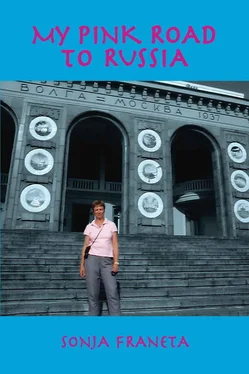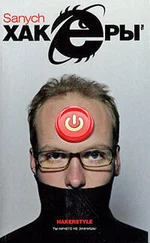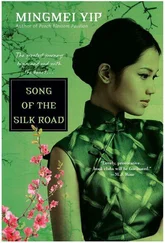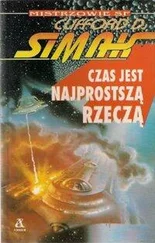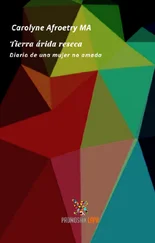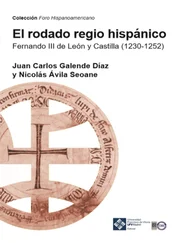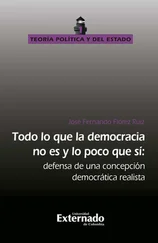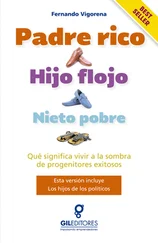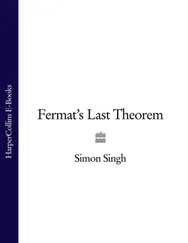The farms in Heiden are so lush and green and abundant no wonder he loved this place. Having grown up in a Yugoslav peasant family, he was skilled with livestock and horses, workhorses very different from his army horse, Nestor. At our place in the Bronx he hung a picture of himself in uniform on the rearing Nestor, a dashing heroic picture from another era. He often talked of the farms and people of Heiden, especially the farmer he worked for, Mr. Mierecke. Mrs. Schubert’s kind father and brother and uncle were the only visitors my father had during his three years in prison.
When my sister died, a very private sadness issued from my father, perhaps some memory, or a hopelessness after so much progress in America. Perhaps he remembered getting the letter from the German farmer he had befriended in Heiden, as he languished in the prison in Essen. The letter announcing the news of his parents’ death in the small town of Aleksinac also came that day. He was not able to see his beloved parents before their death, and he believed they died of grief. In 1983, my father had one heart attack and then second and died.
This is the letter my father wrote in German to Mrs. Schubert’s father.
June 16, 1944
Dear Mr. Meirecke,
After such a long time, I finally got your letter on the tenth of this month and I felt very lucky. I read your letter and looked at the pictures. My memories were awakened and my longing to visit you became stronger. If God gives us the grace to see each other again, I would come back to Heiden. As I read in your letter, you plan to visit me next time. I would be glad about that. If you would all come together, my joy would be greater.
The day I got your letter I felt so lucky and my mood became better. But it didn’t last long. I got another letter from my home with bad news inside. My parents died. Mother died because of longing to see her two sons and because of not seeing us for such a long time. And Father died three days later because of her death and because of missing us both too. You cannot change things that are painful but you also cannot hang your head and be depressed.
If you come to Essen to visit me I would be glad but only on Saturday and Sunday afternoons after 5 p.m.
Now I have to end this letter and I send lots of greetings to you, many greetings to Mrs. Meirecke, Annalise [Mrs. Schubert], Josef, Vincent [her brothers], and warm greetings to Mr. Kaspar [uncle who visited].
I always think of you, Kosta
How thoughtful and warm my father was, in expressing his love and grief. There were people who cared for him in Heiden, who would risk ridicule and criticism to go see him in prison in another city during the war. He was not alone. Words from Anne Michaels’s Fugitive Pieces come to me, and electrons of “grief, whose pain is love” move in my body.

Medjugorje, Yugoslavia. Amid mountains— medju gorje . A village where a certain miracle was said to have taken place.
My mother wanted to make the pilgrimage. It was September 1987, before the ravaging war that split up Yugoslavia. We had been traveling together all over her native land, and now we were here. I was amid mountains myself—my mountainous feelings.
Mother grew up on the island of Krk in the Adriatic Sea, but except for traveling to Zagreb for an operation as a child, she had never seen the rest of her country. She and I had often talked of making this trip together. After my father died, five years earlier, Mother began to travel more. Her life with him had been difficult; now she was going to enjoy herself.
We made a circle by bus through Yugoslavia, starting in Zagreb, stopping in Belgrade and then going through the magnificent river gorge in Serbia, ending up in medieval Dubrovnik. Mother and I were the only members of the group who spoke Serbo-Croatian, and we would often chat with the bus driver, Stipe (pronounced Sti-peh) during breaks on the road.
Stipe was the person who convinced me to take Mother to Medjugorje. He was tall, prematurely white-haired and handsome. “I know you told me you are not a believer,” he said gently in Serbo-Croatian. “But your mother really wants to go.” He was right, I thought. Why was I resisting going to Medjugorje? I could do something for my mother for a few days. “Are you sure you really want to go?” she asked, tilting her head.
We rented a car. The drive up the mountains along the Adriatic was difficult, it was hot, and the narrow road wound tortuously. A light fog drifted around us. With no guardrails, the road often brought us to dangerous precipices. From those heights the deep blue Adriatic and the sheer forest-covered terrain as we clung to the mountain were humbling. We were in the small republic of Hercegovina, about thirty kilometers southeast of Mostar, the nearest town.
“Even Musilmani [Muslims, in Croatian] come to Medjugorje,” said Mother as we drove. “And many have been converted since the Miracle first happened.” Muslims, Catholics, Eastern Orthodox, Croatians, Serbians, Roma, Jews all lived in this part of Yugoslavia.
“I always regret asking your father to become Catholic. But he did it. That’s how much he wanted to marry me.”
My father converted from his Serbian Orthodox religion to Roman Catholicism to marry my mother, yet he hated religion and felt his conversion was a betrayal of his culture.
As the road leveled out to a plateau, Medjugorje loomed before us. Cars seemed to converge from all directions like ants returning to their hill home. A tall, twin-steepled beige church rose from behind a row of trees. More mountains rose well beyond the church, which dominated a sweep of rectangular farmlands and a clump of white stucco houses.
One road was totally blocked by traffic, so the police were detouring cars. I turned toward the other end of the village along with other pilgrims who were frantically trying to get in. The urgency I sensed from them clashed with the rickety horse-drawn cart lazily making its way along the road in the opposite direction.
As we passed a yellow field with a few cars trickling down its winding dirt path, my mother motioned wildly, as if we could beat the crowd. Was the miracle happening at that very moment? We’d better get there in a hurry or we’d miss it. Looking at her darkly, I said, “You can take the wheel if you want to.” She looked away. I drove across the dry, bumpy field, hoping the little Fiat wouldn’t fall apart before we got back to civilization.
Both my parents were Yugoslav immigrants; they met in New York after World War II. My father was a survivor of the Nazi camps, criminalized because he was a Slav. At age nine, my mother was separated from her parents for nine years; after the war she managed to get to the Bronx, where her family had settled.
“Don’t you think this village looks a little like your home on the island of Krk—minus the occupiers, of course?” Sheep and goats were grazing; sparse trees shaded the stone houses and huddled around the church. The rocks, heat and dryness were reminiscent of her native Sveti Vid.
Mother had a one-track mind: “Let’s just find a parking space and then we’ll talk.”
Through the trees, Medjugorje resembled an American country fair, but shabbier. Our rented Fiat squeezed into a space on the main dirt road. We saw crowds and cars everywhere, bushes weighed down by dust, grass flattened by pilgrims’ shoes, men, women, children, young and old, dressed modestly in summer clothes, older women in dark kerchiefs and long dresses. Some people walked barefoot.
My cynicism escalated when I saw the vendors and hucksters. “They’re only here to make a buck,” I told Mother. Concession stands lined the path to the church. People bought food, religious objects, souvenirs. Cars were parked in disarray. A sheep wandered through this metal jungle.
Читать дальше
